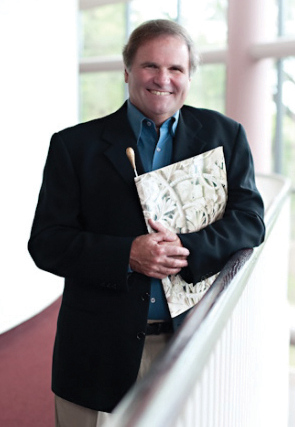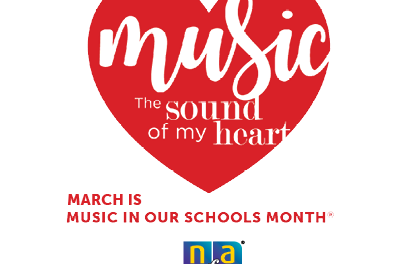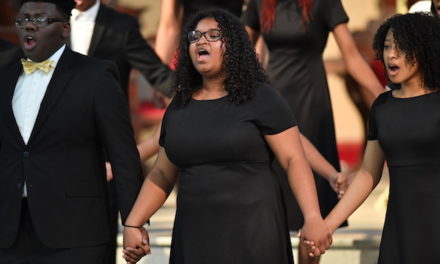From: Selecting Repertoire: A Matter of Conscience A Personal Viewpoint by Craig Kirchhoff
“The future of music may not be with music itself, but rather….in the way it makes itself a part of the finer things humanity does and dreams of.”1
Charles Ives
 Every decision that we make as teachers, musical and extra-musical, is a reflection of our values. In the case of repertoire selection, the critical balance of aesthetic criteria and personal taste defines that value system. While aesthetic criteria may be more easily agreed upon, the issue of personal taste is more elusive to define, yet, may represent the most important component of this delicate musical eco-system.
Every decision that we make as teachers, musical and extra-musical, is a reflection of our values. In the case of repertoire selection, the critical balance of aesthetic criteria and personal taste defines that value system. While aesthetic criteria may be more easily agreed upon, the issue of personal taste is more elusive to define, yet, may represent the most important component of this delicate musical eco-system.
Aesthetic Criteria
Acton Ostling’s landmark dissertation, An Evaluation of Compositions for Wind Band According to Specific Criteria of Artistic Merit3 (1978) established important guidelines for the critical evaluation of musical compositions:
- The composition has form–not ‘a form’ but form–and reflects a proper balance between repetition and contrast.
- The composition reflects shape and design, and creates the impression of conscious choice and judicious arrangement on the part of the composer.
- The composition reflects craftsmanship in orchestration, demonstrating a proper balance between transparent and tutti scoring, and also between solo and group colors.
- The composition is sufficiently unpredictable to preclude an immediate grasp of its musical meaning.
- The route through which the composition travels in initiating its musical tendencies and probable musical goals is not completely direct and obvious
- The composition is consistent in its quality throughout its length and in its various sections.
- The composition is consistent in its style, reflecting a complete grasp of technical details, clearly conceived ideas, and avoids lapses into trivial, futile, or unsuitable passages.
- The composition reflects ingenuity in its development, given the stylistic context in which it exists.
- The composition is genuine in idiom, and is not pretentious.
- The composition reflects a musical validity that transcends idiom, and is not pretentious.
Good music, therefore, has form with a calculated balance of repetition and contrast that great composers manipulate to create and to break our musical expectations. Predictability is the death of great music as is music with little variation in orchestration and timbre. Good music is music that can hold the attention of its listeners and can be remembered through the creative use of rhythm, counterpoint, harmonic color, harmonic motion, melodic interest, and unique textures. Good music is also music that can transport us to different emotional landscapes. Great music is music that makes us feel.
Every piece of music considered for programming should be evaluated using these criteria as a general guide. Aesthetic criteria, however, have little meaning without the context of a distinct musical depth and a distinct musical intelligence that we, as musicians and artists, are required to bring to this process of decision-making.
Personal Taste and Musical Depth
Personal taste, musical depth, and musical intelligence are the result of our direct experiences with great art, great music, and great artists. Being an artist in any field is much more than a prescribed level of accomplishment. Being an artist is a way of life, a way of thinking, a way of perceiving and sensing our reality and understanding the entire spectrum of human experiences, from the most grotesque to the most sublime, and from the most tragic to the most trivial. The following questions may help to guide us on this journey of developing musical depth and personal taste:
- Are you in touch with the great musical monuments of our time and the past, from Claudio Monteverdi to Duke Ellington, John Harbison, Joan Tower, or Aaron Kernis?
- Do you attend live concerts of high quality by important ensembles and by important artists?
- Are you knowledgeable about music that does not directly affect your specific level of teaching but may directly affect your depth as a musician, from Johann Sebastian Bach to Libby Larsen, Henryk Gorecki, George Crumb, or Morton Lauridsen?
- Do you know as much about the most important musicians and composers of our time and the past as you know about the music for the ensembles that you conduct?
- Are you current with the repertoire written for your ensemble, knowing about the latest works from the pen of Michael Colgrass for middle school band, or the most recent publications from the BandQuest Series published by the American Composers Forum or the Windependence Series published by Boosey & Hawkes?
- Do you invest in the depth of your listening experience by continually expanding your collection of CDs and DVDs?
- Do you continue to make music an important part of your daily life?



